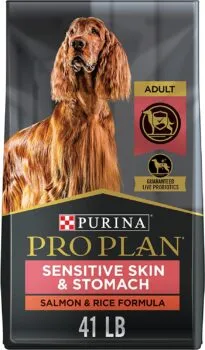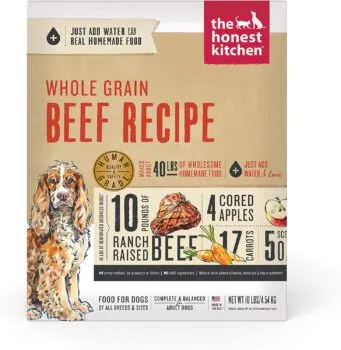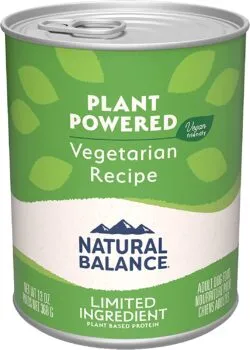Dealing with a Poodle who has a sensitive stomach can be distressing for both you and your furry friend. Symptoms like diarrhea, vomiting, gas, or loss of appetite are clear indicators that their digestive system isn’t happy. Poodles, with their often delicate constitutions, can be particularly prone to these issues. Our vibrant “Dog Care Story” community of Poodle owners frequently discusses this challenge, and the collective wisdom points towards careful dietary management as a cornerstone of good health. Finding the Best Dog Food For Poodles With Sensitive Stomachs isn’t just about alleviating symptoms; it’s about providing long-term comfort and optimal nutrition.
Before making any significant changes to your Poodle’s diet, it is always crucial to consult your veterinarian. They can help diagnose underlying issues, rule out serious conditions, and provide tailored dietary advice based on your Poodle’s specific health needs. This article compiles insights and experiences from fellow Poodle parents and expert recommendations to guide you toward a happier, healthier digestive system for your beloved companion.
Understanding Your Poodle’s Sensitive Stomach
Poodles can experience sensitive stomachs due to a variety of factors, including food allergies, intolerances, genetic predispositions, or underlying medical conditions. Identifying the root cause is the first step towards relief. Common food allergens for dogs often include chicken, beef, dairy, wheat, and soy. For Poodles, specifically, a sensitive gut might manifest as frequent loose stools, excessive gas, or even skin issues. Recognizing these signs early helps you and your vet address the problem effectively.
Signs of a Sensitive Stomach in Poodles
- Loose stools or diarrhea: This is often the most noticeable symptom.
- Vomiting: Can be occasional or frequent, sometimes after eating.
- Excessive gas: More than normal flatulence.
- Abdominal pain or discomfort: Your Poodle might seem restless or reluctant to be touched around their belly.
- Reduced appetite: They may turn away from food they normally enjoy.
- Poor coat condition: A dull coat or skin irritation can also be linked to dietary issues.
Key Ingredients to Look For and Avoid
When selecting the best dog food for Poodles with sensitive stomachs, understanding the ingredient list is paramount. The goal is to minimize irritants and maximize digestibility.
Beneficial Ingredients
- Novel Proteins: If common proteins like chicken or beef are suspected allergens, opt for less common sources such as salmon, duck, lamb, venison, or even rabbit. These can reduce the likelihood of an allergic reaction.
- Single or Limited Ingredient Formulas: These foods have fewer ingredients, making it easier to identify and avoid potential triggers.
- Highly Digestible Carbohydrates: Sweet potatoes, brown rice, and oatmeal are often gentler on the digestive system than corn, wheat, or soy.
- Prebiotics and Probiotics: These promote a healthy gut microbiome. Prebiotics (like chicory root or beet pulp) feed beneficial gut bacteria, while probiotics (live beneficial bacteria) help maintain balance and aid digestion.
- Omega-3 Fatty Acids: Found in fish oil, flaxseed, and some specialized formulas, omega-3s possess anti-inflammatory properties that can soothe an irritated gut.
Ingredients to Avoid
- Common Allergens: Chicken, beef, dairy, wheat, and soy are frequently implicated in food sensitivities.
- Artificial Additives: Dyes, preservatives, and artificial flavors can sometimes trigger digestive upset.
- Excessive Fats: While healthy fats are essential, overly fatty foods can be difficult for a sensitive stomach to process and may lead to pancreatitis.
Top Food & Supplement Recommendations from Poodle Owners
Our “Dog Care Story” community has shared invaluable insights into what has worked for their Poodles with sensitive tummies. While every dog is unique, these recommendations offer a great starting point, often echoing veterinary advice for digestive health.
1. Prescription and Veterinary-Recommended Diets
Many Poodle owners found success with prescription formulas specifically designed for gastrointestinal issues.
- Hill’s Science Diet for Sensitive Stomachs / Hill’s Prescription Diet i/d Low Fat: Several owners, including Deb H. and Dalene M., reported positive results. These formulas are typically highly digestible and often low in fat to ease digestive workload.
- Purina EN Prescription Dog Food: Beth C. highlights this as highly effective for sensitive stomachs.
- Royal Canin Gastrointestinal: Brina Doris B. found this to be a helpful choice. These diets are carefully formulated by veterinarians to support digestive health.
 Elegant Poodle resting peacefully in a natural, soft lighting environment, embodying calm and well-being.
Elegant Poodle resting peacefully in a natural, soft lighting environment, embodying calm and well-being.
2. Over-the-Counter Sensitive Stomach Formulas
Beyond prescription options, many commercial foods are formulated to be gentle on sensitive digestive systems.
- Purina Pro Plan Sensitive Skin & Stomach: Praised by Hayley B. and Agnieszka W., this line often features salmon or lamb as primary protein sources and digestible carbohydrates like rice and oatmeal, alongside prebiotics.
- Fresh Pet: Gloria G. found this fresh, refrigerated food beneficial for her Poodle. Fresh pet foods often contain fewer processed ingredients, which can be easier to digest for some dogs.
- Natural Balance Vegetarian Wet Canned Food: Bebe G. chose this unique option, useful for dogs with multiple protein sensitivities or allergies.
- Purina One with Lamb & Brown Rice: Lauren McNeal Z. uses this successfully due to her dog’s chicken allergy, illustrating the importance of alternative protein sources.
- Authority Chicken and Brown Rice with Tender Chunks: Bonnie Judith Ellen T.’s breeder recommended this, showing that some Poodles can tolerate chicken if formulated correctly, but always proceed with caution if chicken is suspected.
- Nutro Ultra Weight Management: Debbie F. found this helpful for her Poodle, Miss Tilly, who has stomach problems, noting its lower fat content.
- Wellness Complete Health Petite Entrees: Maribeth Gallese D. recommended this, ideal for smaller Poodles, offering balanced nutrition in a palatable form.
3. Homemade & Novel Protein Options
For some Poodles, a carefully prepared homemade diet or specific novel proteins are the answer.
- Chicken and Rice: Linda M. and Agnieszka W. both noted the efficacy of plain cooked chicken and rice, especially during recovery from illness or as a temporary soothing diet. Paul S. further elaborated, suggesting a slow introduction of chicken, noting that some dogs, including his, might tolerate other meats like beef and vegetables better.
- Homemade Ground Turkey, Brown Rice, and Pumpkin: Diane L. shared this recipe, emphasizing lean ground turkey, digestible brown rice, and pumpkin, which is excellent for firming stools due to its fiber content.
- Salmon-based Diets: Kerry M. and Susan Morris P. both highlighted chicken as a common allergen and found salmon-based foods to be a better alternative for their Poodles with serious allergy issues.
- The Honest Kitchen Dehydrated Human Grade Food: Stacey L. described this as a “game-changer” for her three Poodles, emphasizing its human-grade quality and the professional recommendation that led her to it.
 Purina Pro Plan Sensitive Skin & Stomach kibble in a bowl, a common recommendation for dogs with digestive issues.
Purina Pro Plan Sensitive Skin & Stomach kibble in a bowl, a common recommendation for dogs with digestive issues.
4. Probiotics & Digestive Supplements
Beyond food, supplements play a crucial role in maintaining gut health.
- Probiotic Chews: A popular, unnamed recommendation from a community member noted significant improvement in stool consistency within days.
- General Probiotics: Cathy M. reported that probiotics “helped my dogs…they are like new,” even for older Poodles.
- Plain Yogurt (as Probiotic): Dalene M. adds plain yogurt alongside Hills prescription food, leveraging its natural probiotic benefits.
- Hemp Oil: Debbie F. incorporates hemp oil, which some owners find helps with inflammation and overall well-being.
 A bottle of dog probiotic chews, illustrating a common supplement used for sensitive canine stomachs.
A bottle of dog probiotic chews, illustrating a common supplement used for sensitive canine stomachs.
Tips for Managing a Poodle with a Sensitive Stomach
Finding the right food is often a process of trial and error. Here are some essential tips to make the journey smoother:
- Slow Transition: When introducing a new food, do so gradually over 7-10 days, mixing increasing amounts of the new food with decreasing amounts of the old. This helps your Poodle’s digestive system adapt without shock.
- Consistency is Key: Once you find a food that works, stick to it. Frequent changes can upset their stomach.
- Monitor and Document: Keep a diary of what your Poodle eats, any supplements given, and their symptoms. This data is invaluable for your vet.
- Avoid Table Scraps: Human food, especially fatty or spicy items, can easily trigger digestive upset in dogs.
- Fresh Water: Always ensure your Poodle has access to clean, fresh water to prevent dehydration, especially during episodes of diarrhea.
- Stress Reduction: A calm environment can positively impact gut health. Minimize stressors where possible.
 A bag of The Honest Kitchen dehydrated dog food, a human-grade option often recommended for dogs with sensitive digestion.
A bag of The Honest Kitchen dehydrated dog food, a human-grade option often recommended for dogs with sensitive digestion.
When to Consult Your Veterinarian
While dietary changes can make a significant difference, some symptoms warrant immediate veterinary attention.
- Persistent vomiting or diarrhea (more than 24-48 hours).
- Lethargy or severe weakness.
- Loss of appetite for more than a day.
- Blood in stool or vomit.
- Bloated or painful abdomen.
Your veterinarian can perform diagnostics to rule out infections, parasites, inflammatory bowel disease (IBD), or other serious conditions that require medical treatment. They can also recommend specific prescription diets or medications.
Conclusion
Navigating the challenges of a Poodle with a sensitive stomach requires patience, observation, and a willingness to explore different dietary options. The experiences shared by our “Dog Care Story” community highlight that while solutions vary, a focus on highly digestible ingredients, novel proteins, and digestive support like probiotics often yields the best results. Remember, the journey to finding the best dog food for Poodles with sensitive stomachs is a partnership between you, your Poodle, and your veterinarian. Prioritizing their digestive health will lead to a more comfortable, energetic, and happy life for your beloved companion.
[internal_links]Further Reading
Always consult your veterinarian before making significant dietary changes. The recommendations provided in this article are based on collective experiences and general knowledge, not a substitute for professional veterinary advice. Some links in the original article may be affiliate links.
 Bag of Natural Balance Limited Ingredient Diet dog food, often chosen for dogs with food sensitivities.
Bag of Natural Balance Limited Ingredient Diet dog food, often chosen for dogs with food sensitivities.
